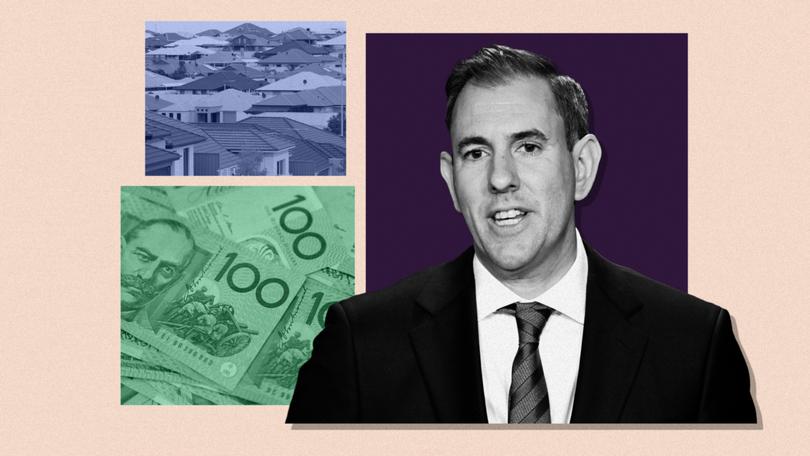EDITORIAL: What 2025 holds for the economy is anyone’s guess
EDITORIAL: As the end of the year approaches, economists begin polishing their crystal balls in anticipation of making their predictions for the year ahead.

As the end of the year approaches, economists begin polishing their crystal balls in anticipation of making their predictions for the year ahead.
It’s always a fraught exercise. The economy is a living creature and loves to defy the experts. But the outlook this year is even more stubbornly hazy than usual.
Treasurer Jim Chalmers has moved to temper any expectations, breaking to us early the news that the value of mining exports will be downgraded by more than $100 billion and company tax revenue by $8.5 billion in Wednesday’s Mid-Year Economic and Fiscal outlook.
Sign up to The Nightly's newsletters.
Get the first look at the digital newspaper, curated daily stories and breaking headlines delivered to your inbox.
By continuing you agree to our Terms and Privacy Policy.The days of multi-billion dollar surpluses are over. Instead, we can expect deficits as far out as the budget books can see.
By breaking the news to us early, ahead of what might be the best look at the books we get before next year’s Federal election, Dr Chalmers is trying to soften the blow and set up the narrative to blame China for our downturn in fortunes.
The economy of Australia’s largest export destination is experiencing its own head winds, leading to a weakening of commodity values, ripping billions from mining receipts across the forward estimates.
But it may not be all bad news. One scenario under analysis by the Reserve Bank is that a continued deterioration of China’s growth conditions could prompt President Xi Jinping’s government to prop it up with an enormous stimulus package, which would be a boon for our own economy.
What any of that will mean for households trying to make sense of what the year ahead might hold is, like much else, unclear.
A big part of the problem is that so many of the conventional economic wisdom used to make predictions has been flipped on its head in recent years.
Under ordinary circumstances, we would expect that high interest rates would push unemployment up, forcing inflation and housing costs lower.
The RBA’s tightening cycle has worked to slow inflation’s march, but underlying inflation remains stubbornly outside the bank’s target band, with no real prospect of it sustainably coming to heel before mid-2026.
Unemployment figures continue to confound the experts by remaining under 4 per cent, pushing the prospect of a rate cut further back. Those conditions have failed to deter prospective homeowners though, with house prices continue to climb.
While the nation has managed to avoid a technical recession thanks to migration, productivity is at a standstill and Australians are suffering through a prolonged household recession putting their own budgets under strain.
It’s a tumultuous time and sets the stage for next year’s election which is shaping up to be a referendum on cost-of-living.
Despite the fact he has booked in a massive deficit to come, Dr Chalmers says there’s still plenty to be optimistic about, including the resilience of the resources sector.
Convincing Australians to share in his optimism will be his party’s key challenge as the election nears.
